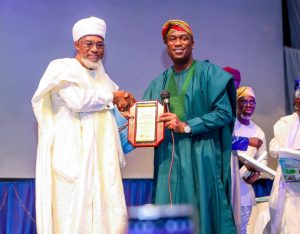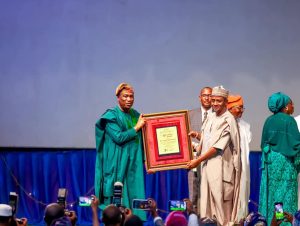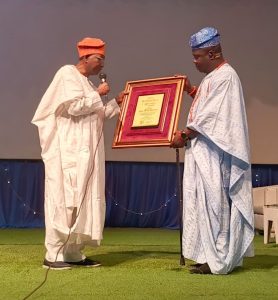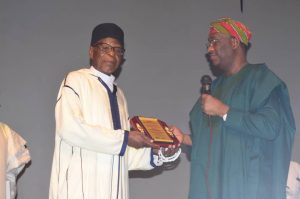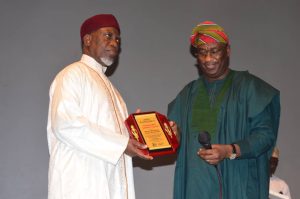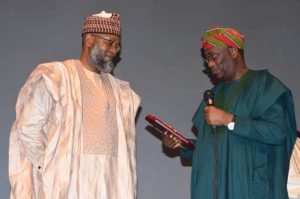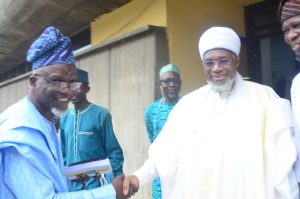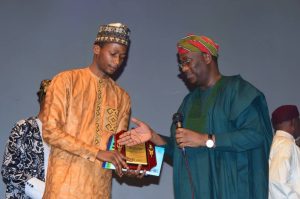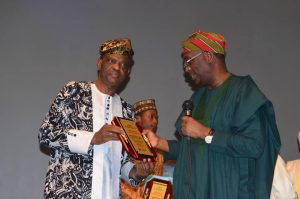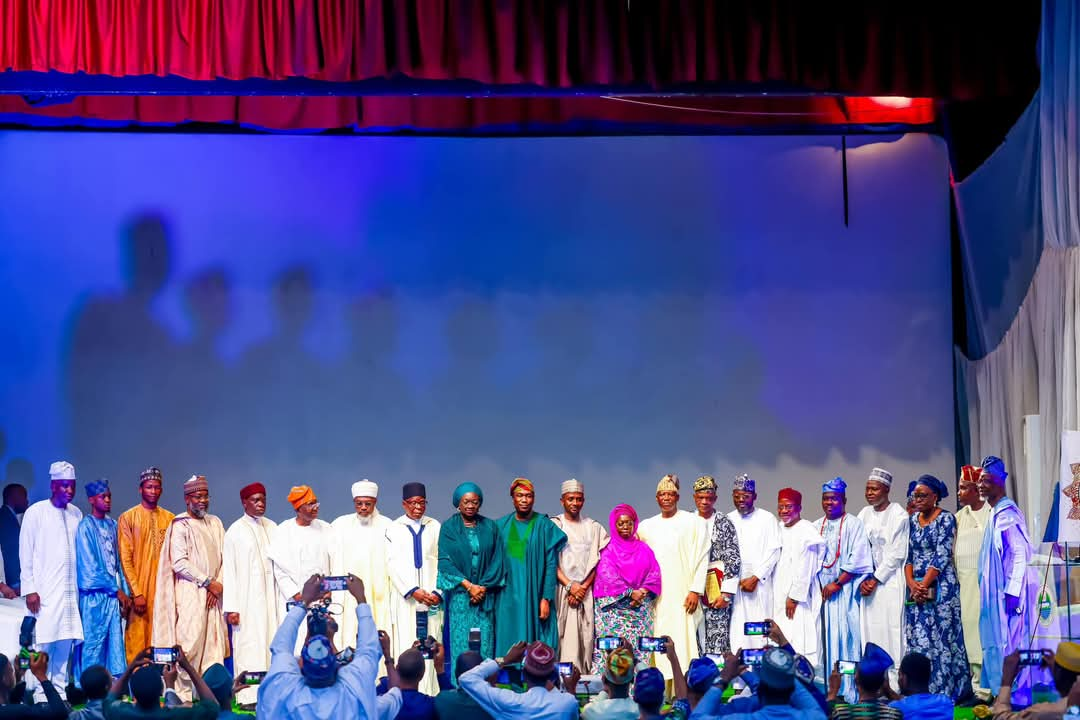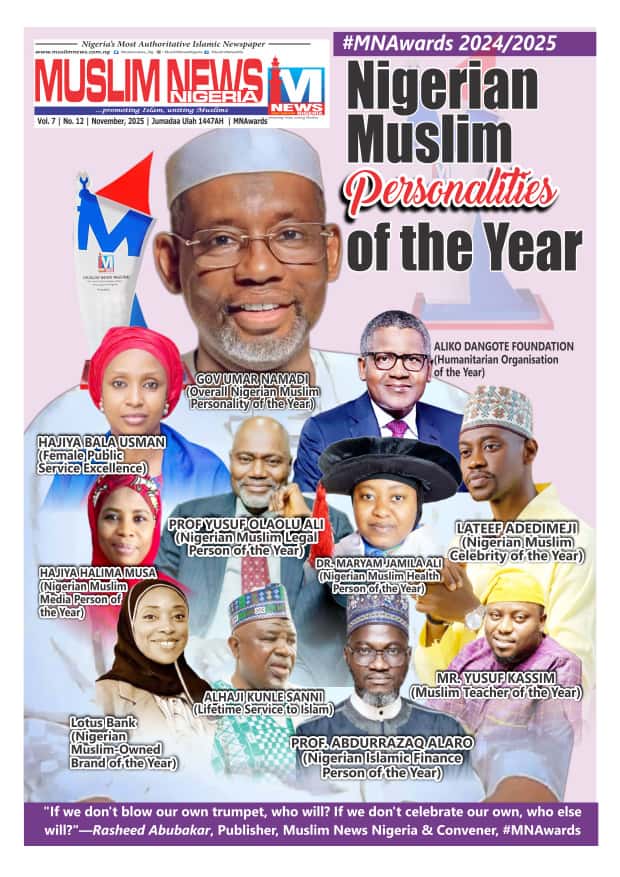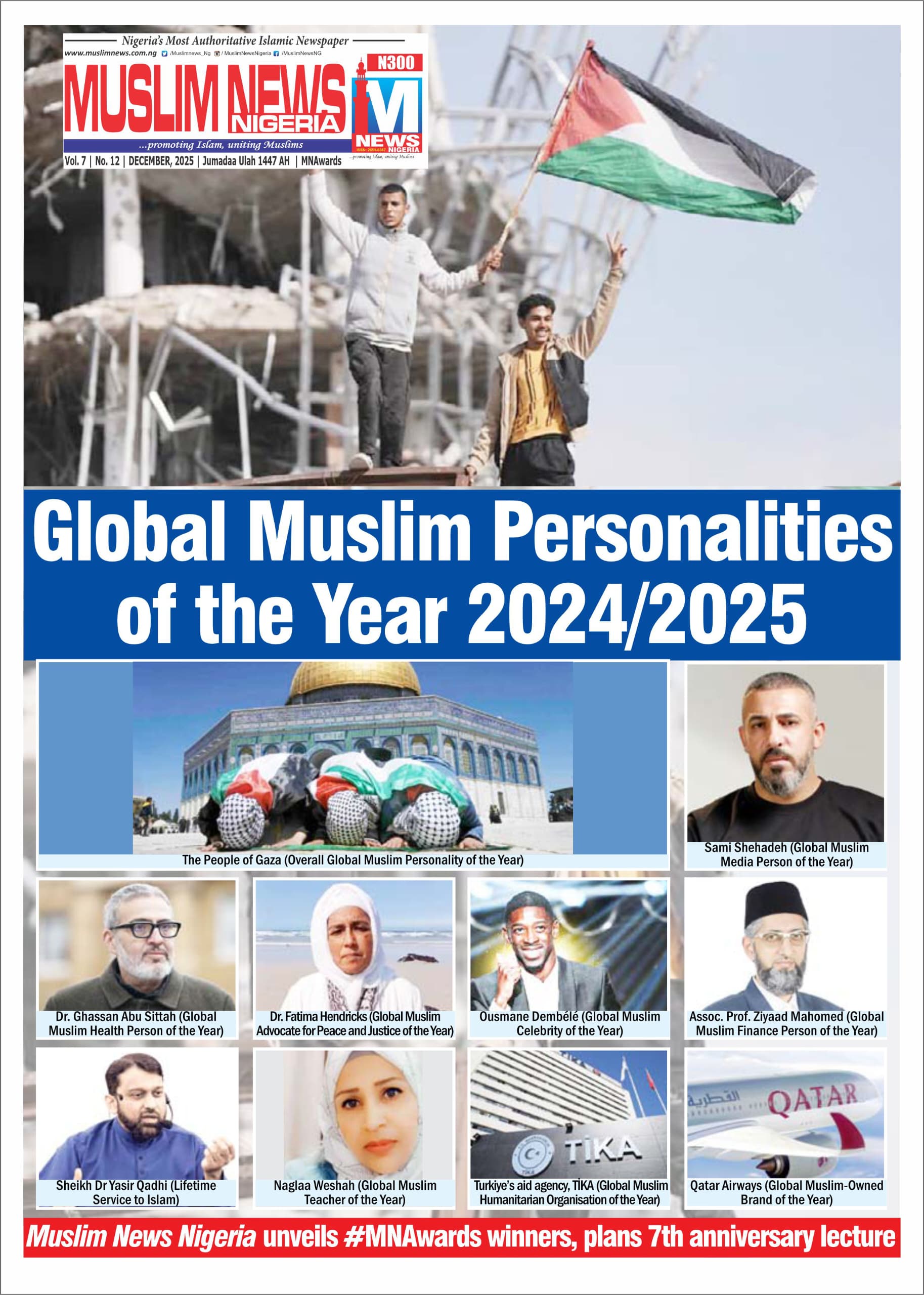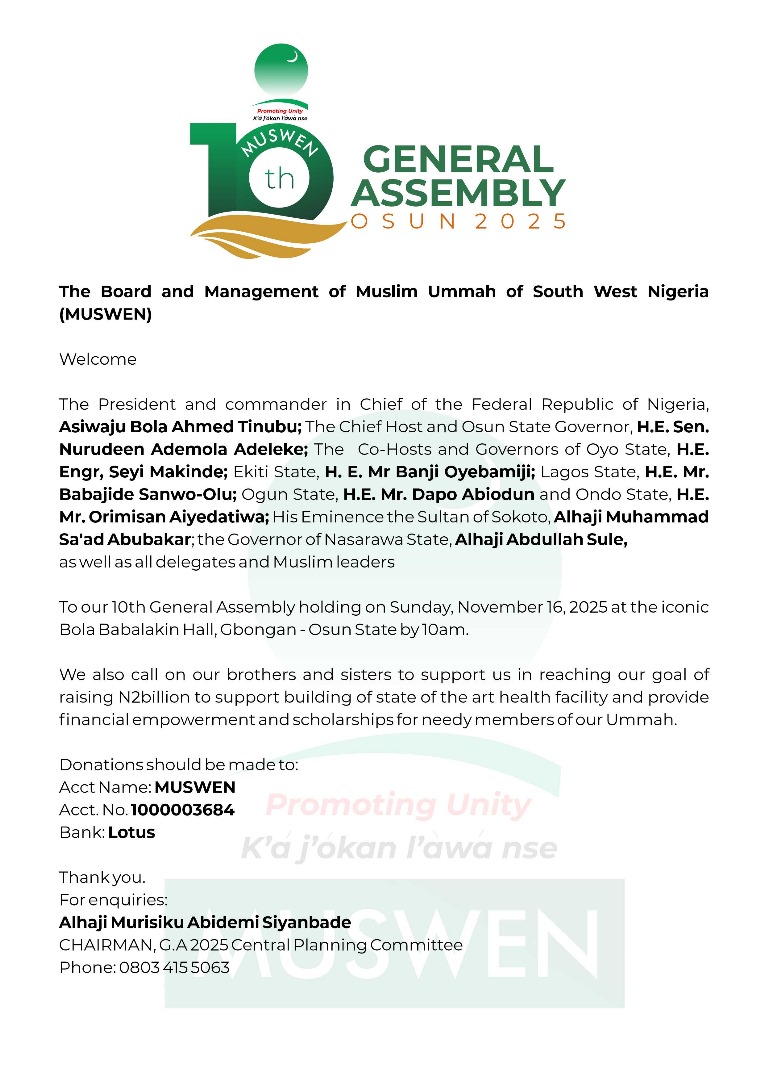* Says lack of legal institutions to regulate Muslim affairs is unfortunate
* As UNILAG Muslim Alumni UMA holds 30th Pre-Ramadan lecture
Judge of the Shari’ah Court of Appeal, Ilorin, Kwara State, Justice AbdurRaheem Ahmad Sayi has charged states in Southwest Nigeria to consider the creation of courts of first instance that can exercise jurisdiction in Islamic law.
Justice Ahmad Sayi said the non-existence of courts with jurisdiction to handle matters involving Islamic laws has created a big vacuum in the subregion, which he said should be filled immediately.
He therefore urged the leadership of the Muslim community in the Southwestern states to go ahead and invoke section 275 (sub 1) of the constitution which provides for the establishment of the Shari’ah Court of Appeal at the state level.
The judge spoke as one of the guest lecturers at the 30th Pre-Ramadan lecture of the University of Lagos Muslim Alumni (UMA) that was held on Sunday, 23rd February 2025 at the J.F Ade Ajayi Auditorium of University of Lagos, Akoka.
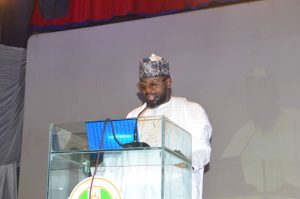
This year’s edition was themed: ‘Transformative Power of Ramadan’.
Addressing the topic, ‘Shari’ah in Southwest Nigeria,’ Justice Ahmad Sayi said the state of affairs in southwest Nigeria offends the fundamental objective and principles of the Nigerian state as enshrined in the 1999 Nigerian Constitution, as amended.
“Muslims are completely ostracized. They are not provided for in the law. They are treated as if they are not citizens of the law. The constitution does not envisage any situation where there will not be inclusiveness in the country’s body of state laws. As a matter of fundamental rights, to determine certain aspects of my life in accordance with Islamic law is in essence an expression of my faith in Islam, which is also guaranteed by the constitution.
“We are asking that the states in the southwestern subregion critically consider creating courts of first instance that would exercise jurisdiction in Islamic law, and should all move ahead to invoke Section 275 Sub 1 of the constitution, which provides that there shall be for any state that requires it a Shari’ah Court of Appeal. We are arguing that all states in the southwestern subregion, by virtue of the population distribution of Muslims against non-Muslims, require the establishment of the Shari’ah Court of Appeal.”
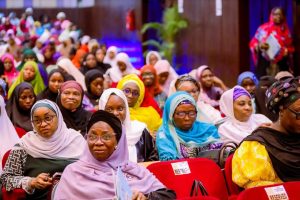
No institution in southwest to regulate Muslim families, marriages: Justice Sayi
Justice Ahmad Sayi, who is a revered expert in Islamic jurisprudence, noted that there are no institutions in the southwest to regulate Muslim families and marriages due to lack of legal framework.
“Nigeria, being a heterogeneous society, has marriages that are conducted under different laws – whether under the English law or under the various native and customary laws. There are, of course, marriages and family institutions founded on Islamic law.
“So, what we are saying is that our family law in southwestern Nigeria has provided only for the two classes of family, but not Islamic family. That has led to a serious vacuum in the body of the various states’ family law, which has also resulted in arbitrariness as there is no court of competent jurisdiction to resolve disputes arising from marriages that are conducted pursuant to Islamic law.
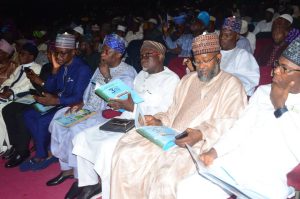
“Hence, the marriages may even be struggling for legal recognition, and incidences of divorce or any dissolution of such marriages, as well as the custody of the children of divorced marriages and what are supposed to be the obligations of the father of the children, and the mother, are not provided under any law in the entire southwestern subregion.
“We think it is a slap on the face of the Muslims of these concerned states that are not adequately represented in the body of family law. I think that should be corrected,” Justice Sayi advocated.
Southwest Shari’ah panel denial constitutes a trespass on Muslim Ummah
While speaking with Muslim News, the Judge also spoke on the Shari’ah Arbitration Panel that stirred up the recent controversies around Shari’ah in southwest.
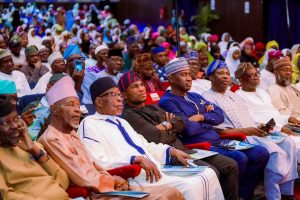
He said the initiative by the Muslim community was borne out of necessity and that the Nigerian law allows people to submit their matters to a private arbitration.
Justice Ahmad Sayi said it is a big trespass on the collective intelligence of Muslims to be denied such a private initiative for arbitration.
“The initiatives at the various states are borne out of necessity because the legislature and executive have failed to exercise their powers in creating courts of competent jurisdictions. The Muslim communities in their own initiative created arbitral panels to mediate feud between families and disputes among Muslims. Yet, we are still seeing some monarchs and state authorities as well crying over that. It is no business of theirs,” he said.
“It concerns no one what Muslims are doing within the confines of their mosques. If I am an Imam in a masjid, and people refer matters to me, I am in a way exercising a mediatory or conciliatory role. Arbitration law is by contract. If people submit their matter to a private arbitration, it is covered by the arbitration and mediation act of the Federal Republic of Nigeria (2023). Before that, we had the arbitration and conciliation law. All these enactments have provided for the people submitting their differences to private arbitration, and not only the subject matter of the dispute alone, they also have the right to select which law should govern the resolution of the matter.
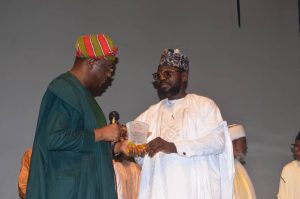
“We appeal to our Christian brothers that this is totally a family affair for the Muslims. It doesn’t concern them. We are the ones that have laws that are peculiar to our faith, and we think we have to be given the rightful avenue to govern ourselves by the law that we believe in.
“So, even if the state is not giving us yet, and we are now looking at a private initiative, it’s going to be a big trespass on our collective intelligence for anyone to dictate what Muslims should do or not do. We are not second class citizens in the southwest, and we hold that we are in the vast majority.”
The pre-Ramadan lecture was well-attended by Muslim graduates of UNILAG and dignitaries from across the country
Among the dignitaries were the Deputy Governor of Lagos State, Dr. Kadri Hamzat; Deputy Governor of Ogun State, Engr. Noimot Salako-Oyedele; former Governor of Zamfara State, Senator Abdulaziz Yari, represented by Senator Umar Shehu Buba, Chairman, Senate Committee on National Intelligence; Olowu of Owu Kingdom, Oba Saka Matemilola, represented by Alhaji Chief Dr Kazeem Bakinson, Maiyegun of Òwú Kingdom; the Chief Host, VC, UNILAG, Professor Folasade Ogunsola, represented by UNILAG DVC Academics and Research, Professor Bolanle Olufunmilayo Oboh.
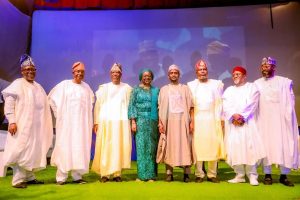
Others were the senator representing Lagos West Senatorial District, Dr Idiat Adebule; another Senator representing Ogun Central senatorial District, Senator Shuaib Afolabi Salisu; Muslim Ummah of South West Nigeria (MUSWEN) President, Alhaji Rasaki Oladejo; Former Vice Chancellor, UNILAG, Prof AbdurRahman Bello; Ex NAHCON Chairman, Bar. Zikrullah Hassan; Lead Consultant, AS & Associates, Abdullah Shuaib; Former AMCON Chairman, Dr Muiz Banire, SAN; Aare Musulumi of Ijebuland, Bar Musibau Oyefeso, and the endless list of top dignitaries and captains of industries.
Prof Baderin urges Muslims to make adequate preparations for Ramadan
Also speaking at the pre-Ramadan lecture, Prof. Moshood Baderin, who led the discourse, urged Muslims to prepare adequately for the month of Ramadan and harness its transformative value.
According to the Professor of Law at the School of Oriental and African Studies, University of London, “Ramadan is reformative in the sense that when a person is fasting, it makes them conscious of Allah all the time.
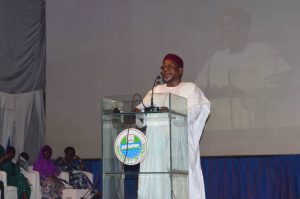
“While fulfilling the spiritual aspects, there are so many requirements of fasting a Muslim should uphold, like being kind to people, feeding the poor, and watching your speech. If a person continues doing that for 29 or 30 days, it changes him in a particular way. It makes him a better person,” Prof. Baderin added.
He said the challenge for many Muslim is on how to sustain the transformation Ramadan has offered them.
Quoting Imam Al-Ghazaali on the categories of siyaam (fast) during Ramadan, Prof. Baderin emphasised that the transformative power of the holy month can only endure when one observes it very well.
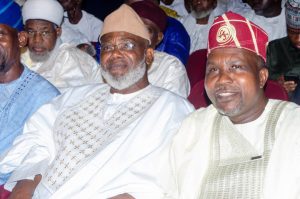
“Imam Al-Ghazaali indicated that it depends on how you observe the fast. There are people who just do the general fasting, which doesn’t go beyond not eating, not drinking, not having sexual relations. Such persons may benefit from the transformative power of Ramadan during the month alone, but after Ramadan, they go back to their old ways.
“The second category is the fasting of the special people, whereby you fast not only for denying yourself food and drinks, but also you look at your habits. This is a little deeper than the first category. So, by the time Ramadan is gone, that stays with you.
“The third category is the fast of the special of the specials. Their fast is not only about not eating and drinking, but also their soul participates internally.
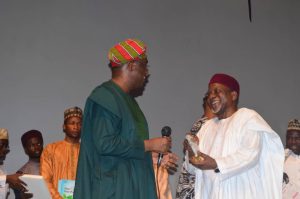
“We are able to reach this stage by involving in i’tikaaf towards the end of Ramadan. It means you are putting your soul into it. You are taking yourself out of the world. If a person is able to get to this stage, the reformative aspect of Ramadan will sustain them till another Ramadan comes.”
Ramadan presents opportunity to imbibe in positive disposition to humanity: Deputy Gov
The Lagos State Deputy Governor, Dr Kadri Obafemi Hamzat, in his keynote address, praised the Dr Mumini-Alao-led UNILAG Muslim Alumni (UMA) administration for their commitment and dedication to planning a gathering that attracted an audience from across the globe.
Dr Hamzat stated that Ramadan, the ninth month of the Islamic calendar, is sacred for Muslims, adding that the period of its observance presents a clear opportunity for an individual to imbibe the culture of compassion, generosity, the transformation of the body through healthy habits, and generally in positive disposition to humanity.
He disclosed that fasting during the period, which may be 29 or 30 days, goes beyond an annual commemoration, adding, “The impact of fasting is also that it transforms us inwardly and externally. Fasting expresses our servitude (diyyah) to Allah. It trains us to submit and obey.”
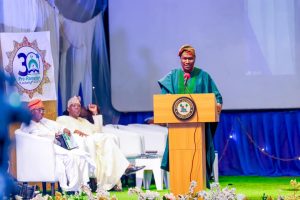
The Deputy Governor explained that fasting transcends religiosity alone and urged Muslims to rededicate themselves to Allah.
“Beyond the religiosity of observance of fasting is also the need to internalize the various critical disciplines that come with properly undertaking the will of Allah.
“I daresay, deep revelations that proffer divine solutions are a necessity today. If life is lived according to Allah’s revelation, we will have a better society.
“Fasting has no tribal cleavage. As Islam dictates for an Arab, it did for a Hausa man, so also for a Yoruba man. The existence of Islam in quantum growth all over the world is indeed of Allah’s will to provide all with a culture of right living. Across the places where Muslims exist, we must be able to replicate the haven Allah envisions for Muslims.
“It is safe for me to conclude this address by urging the Muslim faithful to use this period of devotion and contemplation to rededicate ourselves to doing the will of Allah. Wherever we are, whatever our status, we must promote the will of Allah. Our personal resolve to create impact individually will create such outstanding changes that will enable humanity to prosper.”
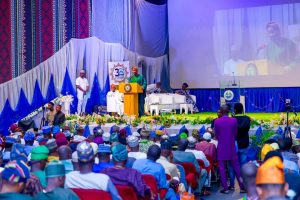
He urged Muslim scholars and clergymen to champion the cause of positive change in their pulpits.
“Islamic clerics must see their pulpit as a place to drive change. The moral epitaph of our faith must become the focus. The call to draw closer to heaven cannot become the article of trade. Rather, the call to heaven or to Allah’s dictates must be a subject matter collectively projected from the loudspeakers of our mosques.
“The Imam is an employee of Allah. It is a privileged position from which pious life and forthrightness must be projected. No one must be allowed to bring a stain to the exalted position. The blessings of Allah most certainly are able and enough sustenance. By staying far from the “corruption” of their congregation who ostensibly know less of the faith, they can decry and check excesses.”
Teachings Of Ramadan Can Engender prosperous Nigeria: UNILAG VC
Earlier, the Chief Host and institution’s Vice Chancellor, Prof. Folasade Ogunsola, represented by the Deputy Vice-Chancellor, Academics and Research, Prof. Bolanle Olufunmilayo Oboh, lauded UMA for sustaining a good legacy over the past three decades.
She said, “It gladdens our hearts that the UMA has been able to sustain the Pre-Ramadan lecture for the past 30 years. Not only have they sustained it, but we have seen their impact on the lives of our postgraduate students, especially in the area of scholarships they offer our students. For this, we are very impressed and happy.”
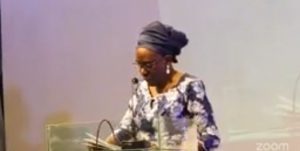
The VC said the institution has strengthened its relationship with the Muslim Alumni Association, adding that it has made it possible for the Muslim and Christian communities to live together in harmony at the University
She expressed great hope that the transformative power of Ramadan, which is going to commence around the same time in March 2025 with the Christian lent fast, will reflect in building a prosperous nation.
“As we anticipate Ramadan, we are hoping that the transformative power of Ramadan will reflect in our nation, especially now that Nigeria is at a critical point. Those of us in the education sector will understand what I am talking about, because, we feel it a lot but we are hoping that with all the prayers and lectures we listen to, we will be able to reflect it in building this nation into a prosperous nation for everyone, young and old; rich and poor,” she added.
Lecture, attendance excites UMA President
Earlier in his welcome address, President of the UNILAG Muslim Alumni, Dr. Abdulmumin Alao, described the 2025 Pre-Ramadan lecture as epoch-making, as it marked the 30th in the series.
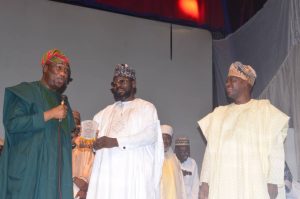
“Thirty years of any human endeavour should not be taken for granted. Therefore, we give immeasurable thanks to Almighty Allah (SWT) for giving us the grace to bring the lecture series this far. We pray also that He gives us the strength to continue doing this for many more decades to come, amen,” the UMA President said.
Dr. Alao used the opportunity to draw attention to the scholarship programme of the association under which indigent Muslim postgraduate students are supported to pursue careers in academics.
“As an association of intellectuals, UMA decided to focus on this specific area of need when we noticed the huge shortage of Muslim manpower in the sector,” he said.
“A summary of how far we have gone with our scholarship intervention over the years can be found elsewhere in the brochure.
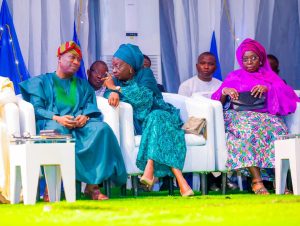
“We humbly invite individuals and corporate donors to subscribe to the scholarship scheme as sponsors so that we can produce more PhD holders from amongst the Muslim Ummah. Our desire is to commemorate this 30th anniversary lecture by doubling the number of PhD scholarships that we have awarded so far.”
Sheikh Ahmad, Shafi’i, Eleha, others honoured
The 30th anniversary of the UMA Pre-Ramadan lecture also featured the presentation of awards of recognition to scholars who have served as guest lecturers in previous editions of the event.
The revered Muslim scholars honoured included Chief Missioner, Ansar-Ud-Deen Society Worldwide, Sheikh Abdur-Rahman Ahmad; Mudeer, Markaz Salaam, Sheikh Jubril Ramadan Jubril; Mudeer, Zawiyat Sofwat El-Islam, Sheikh AbduWahab Zubayr (Al-Gamawy); Chief Imam, Daru Na’eem Central Mosque, Sheikh Imran AbdulMajeed Eleha.
Others who were represented are Mudeer, Mahdul-Iftai wan-Najaat Institute of Arabic & Islamic Studies, Sheikh Muhammed Robiu Adebayo (Baba Loworo); Mudeer, Markaz Nurul-Islam, Sheikh Daud Alfanla AbdulMajeed; and Grand Mufti, Conference of Islamic Organizations (CIO), Sheikh Dhikrullah Shafi’i.
Sheikh AbdurRahman Ahmad, one of the awardees, noted that the recognition is a challenge to do more.
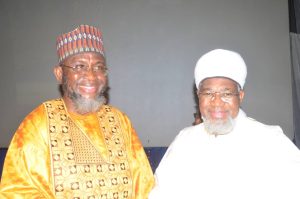
“It is very challenging indeed. It’s an honour, but I see it as a very big challenge — a challenge to be more, do more, and to say more,” he stated.
He, therefore, commended the organisers of the UMA pre-Ramadan lecture, noting that it is an opportunity to enlighten the generality of Muslims.
“But we must be wary of turning it into ceremonies that would detract from the fundamental importance of bringing home the clear message of Ramadan, and connecting it not just as a ritualistic act of worship, but something that will bear fruits,” he added.
“Pre-Ramadan lecture should be aimed at enlightening people, reminding them of their duties to Allah (SWT), and their duties to fellow human beings.
“Particularly, we must underscore the fact that the month of Ramadan is meant to transform. So, we must emphasise the transformative power of Ramadan, and that the most unfortunate person is the person who goes through fasting, but the fasting refuses to go through him. That means a person who fasts, and the fasting does not affect him or her positively, does not result in attitudinal change, does not result in an increase in eeman, and does not purify his morals.
“These are the things we must emphasise for pre-Ramadan, Ramadan, and post-Ramadan lectures to be meaningful and useful,” he said.
